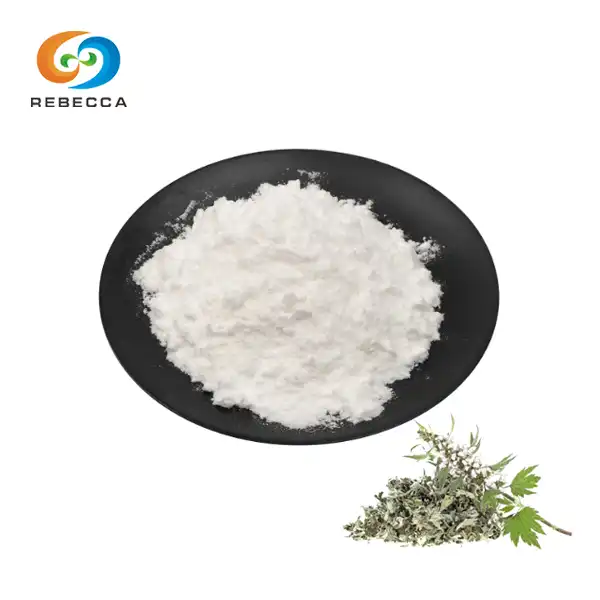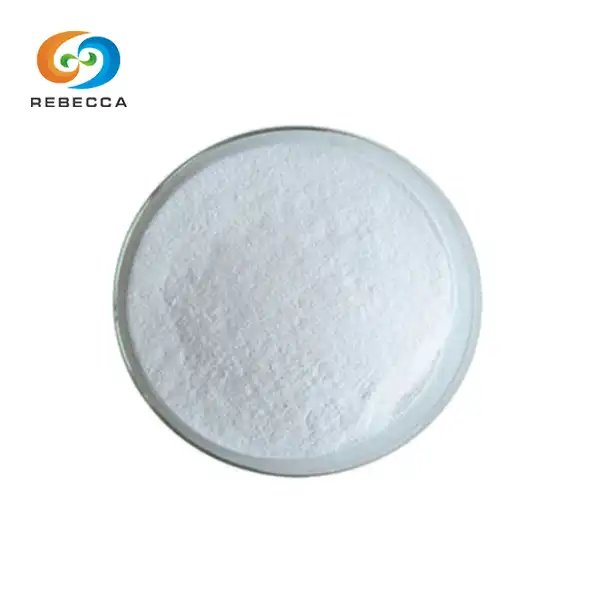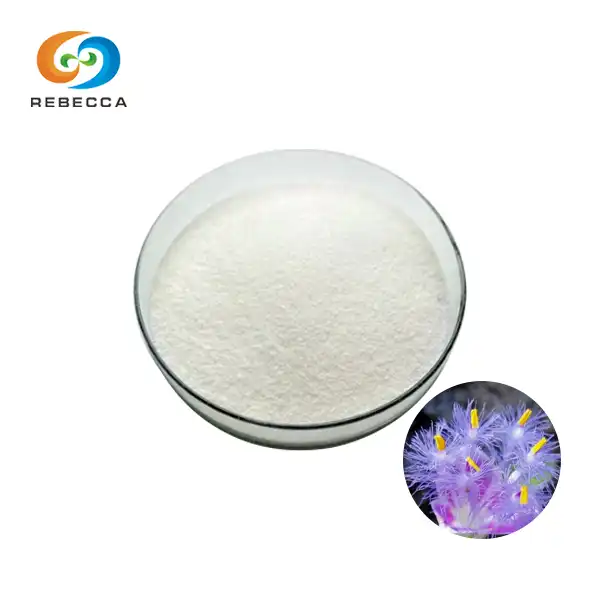Why would a patient need vitamin B12?
Vitamin B12, also known as cyanocobalamin, is a water-soluble vitamin that plays a pivotal role in maintaining overall health and well-being. While often associated with energy production, its functions extend far beyond that, impacting multiple physiological systems. For patients, understanding the necessity of vitamin B12 (cyanocobalamin) can shed light on managing various health conditions and preventing deficiencies. This article explores three key areas where the role of vitamin B12 becomes critical: addressing dietary or absorptive deficits, maintaining a healthy nervous system, and supporting homocysteine metabolism.
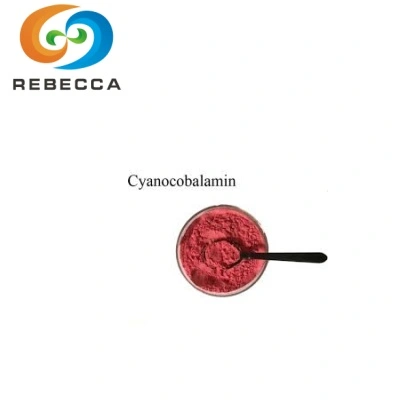
Cyanocobalamin is a form of vitamin B12, also known as vitamin B12.Cyanocobalamin plays a vital role in the human body, especially for the normal functioning of the nervous system and the formation of red blood cells. Cyanocobalamin participates in a variety of biochemical reactions in the body and helps maintain the body's normal metabolic function.
Addressing Dietary or Absorptive Deficits
One of the primary reasons patients may require vitamin B12 (cyanocobalamin) is to overcome challenges in obtaining or absorbing the nutrient effectively. Unlike many other vitamins, natural dietary sources of vitamin B12 are predominantly found in animal products such as meat, fish, dairy, and eggs. This poses a significant risk for individuals following strict vegetarian or vegan diets, who may not consume these foods regularly. Over time, a plant-based diet without intentional supplementation can lead to a gradual depletion of B12 stores, as the body's reserves are not replenished.
Beyond dietary choices, absorption issues can arise due to various medical conditions. Pernicious anemia, an autoimmune disorder, is characterized by the body's inability to produce intrinsic factor, a protein necessary for absorbing vitamin B12 from the diet. Without the intrinsic factor, even a diet rich in B12 becomes insufficient, leading to deficiency. Gastrointestinal surgeries, such as gastrectomy or bariatric procedures, can also disrupt the normal absorption process by altering the stomach's structure or reducing the surface area available for nutrient uptake. Chronic intestinal disorders like celiac disease or Crohn's disease further complicate absorption by damaging the intestinal lining, impairing the body's ability to extract vitamin B12 effectively.
For patients with these conditions, supplementation with vitamin B12 (cyanocobalamin) becomes essential. Cyanocobalamin, a stable and widely used form of the vitamin, is often administered through oral supplements, intramuscular injections, or sublingual tablets to bypass absorption obstacles. Regular monitoring of B12 levels and appropriate supplementation can help prevent the onset of deficiency-related symptoms and maintain optimal health.

Nervous System Maintenance
The nervous system relies heavily on vitamin B12 (cyanocobalamin) to function correctly. One of the vitamin's key roles is in the synthesis and maintenance of the myelin sheath, a protective layer that surrounds nerve fibers and facilitates efficient transmission of nerve impulses. Without adequate B12, the myelin sheath can deteriorate, leading to impaired communication between nerves and various neurological symptoms. Patients may experience tingling or numbness in the hands and feet, a condition known as peripheral neuropathy, which can progress to muscle weakness and coordination issues if left untreated.
Vitamin B12 also plays a crucial role in the production of neurotransmitters, the chemical messengers that enable communication between nerve cells. Imbalances in neurotransmitters such as serotonin and dopamine, which are influenced by B12 levels, have been linked to mood disorders, memory problems, and even cognitive decline. In severe or prolonged deficiencies, patients may exhibit more serious neurological symptoms, including confusion, depression, or difficulty walking, highlighting the urgent need for intervention.
Preserving nervous system health is particularly important for older adults, as the risk of B12 deficiency increases with age due to declining stomach acid production, which aids in nutrient absorption. By ensuring adequate levels of vitamin B12 (cyanocobalamin), patients can support the structural integrity of their nervous system, maintain proper nerve function, and reduce the risk of irreversible damage. Early detection of deficiency through blood tests and timely supplementation is key to managing these neurological risks.
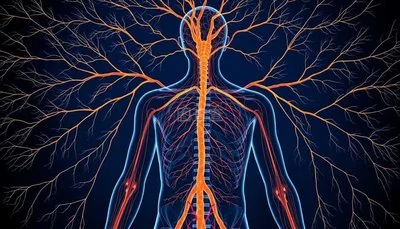
Homocysteine Metabolism
Another critical function of vitamin B12 (cyanocobalamin) is its role in homocysteine metabolism, working in tandem with folate (vitamin B9) and vitamin B6. Homocysteine is an amino acid produced during protein metabolism, and high levels in the blood have been associated with an increased risk of cardiovascular diseases, including heart disease, stroke, and peripheral artery disease. Vitamin B12 acts as a coenzyme in the conversion of homocysteine to methionine, a process that helps regulate homocysteine levels and maintain cardiovascular health.
Research has shown that individuals with low vitamin B12 levels often have elevated homocysteine, which can damage blood vessel walls and promote the formation of blood clots. This inflammatory process contributes to the development of atherosclerosis, where arteries become narrowed and hardened. Additionally, high homocysteine has been linked to cognitive decline and an increased risk of neurodegenerative diseases, highlighting the vitamin's broader impact on both heart and brain health.
For patients with existing cardiovascular risk factors or a history of heart disease, ensuring adequate vitamin B12 (cyanocobalamin) intake is part of a comprehensive strategy to manage homocysteine levels. Combined with a balanced diet rich in folate and B6, supplementation can help maintain healthy homocysteine metabolism, reducing the burden on the cardiovascular system and supporting long-term vascular health. Regular blood tests to monitor both B12 and homocysteine levels are essential for tailoring treatment plans effectively.

Vitamin B12 (Cyanocobalamin) For Sale
At Rebecca Bio-Tech, we are proud to offer premium-quality vitamin b12 (cyanocobalamin) powder, meticulously designed to meet the highest standards of purity and efficacy. Our product is manufactured with uncompromising attention to detail, ensuring that every batch delivers 99% purity, verified through advanced HPLC (High-Performance Liquid Chromatography) testing. This rigorous testing method guarantees accurate and reliable quality analysis, providing our clients with complete confidence in the consistency and safety of our product. With a CAS No. of 68-19-9, our vitamin b12 powder is a trusted choice for formulating dietary supplements, pharmaceuticals, and nutraceutical products. It serves as a stable and bioavailable source of this essential nutrient, making it ideal for applications ranging from preventive health solutions to specialized therapeutic formulations.
At Rebecca Bio-Tech, we are not just a supplier—we are a partner in your success. Our team of experts is dedicated to supporting your health and wellness initiatives with exceptional customer service and tailored solutions. From initial inquiries to large-scale orders, we strive to make every interaction seamless and productive. If you would like to learn more about our Vitamin B12 powder, discuss custom requirements, or place an order, please feel free to contact us at information@sxrebecca.com. We look forward to collaborating with you in advancing health and wellness through reliable, high-performance ingredients.
References
National Institutes of Health Office of Dietary Supplements. (2023). Vitamin B12.
Mayo Clinic. (2022). Vitamin B12 Deficiency.
American Heart Association. (2021). Homocysteine and Heart Disease.


